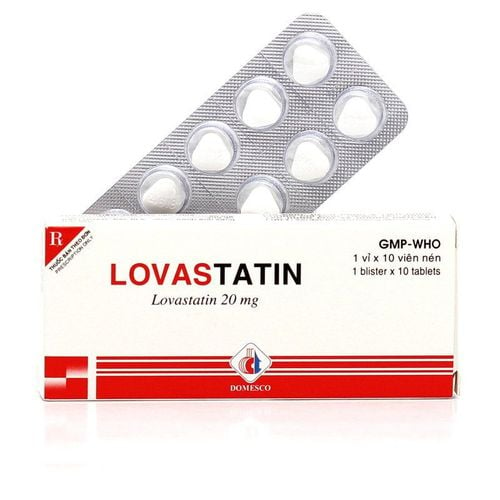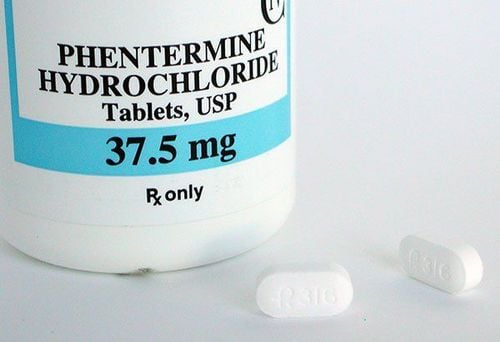This is an automatically translated article.
Weight gain and weight loss can be known for reasons related to calories and willpower. However, modern obesity research does not agree with this view. Scientists now think that the cause of this condition may be related to the hormone leptin. Leptin resistance, in which your body does not respond to this hormone, is now thought to be the leading cause of fat gain in humans. This article explains leptin and its association with obesity.1. Leptin - Hormone that regulates body weight
What is Leptin? Leptin is a hormone produced by your body's fat cells. Leptin is often referred to as the satiety or hunger hormone with its primary activity in the brain - specifically in an area called the hypothalamus.Leptin is thought to tell your brain that - when you have enough fat stores - you don't need to eat and can burn calories at a normal rate. Leptin may also have many other functions related to fertility, immunity, and brain function.
However, the main role of leptin is to regulate long-term energy, including the number of calories you eat and consume, as well as the amount of fat you store in your body.
The leptin system evolved to keep the body from going hungry or overeating, both of which will make you less likely to survive in the wild.
Today, leptin is used very effectively in helping us not to go hungry. But something is broken in the mechanism that is supposed to prevent us from overeating.
2. The effect of leptin on the body's brain
Fat cells can produce more Leptin for the body. The more fat the body carries, the more leptin fat cells produce. Leptin is carried by the blood into the body's brain, where it sends signals to the hypothalamus - the part that controls when and how much you eat. Fat cells use leptin to tell the brain how much fat cells are currently carrying in the body. High levels of leptin tell the brain that you have a lot of fat storage, while low levels tell the brain that fat stores are low and you need to eat.When you eat, your body fat increases, which leads to an increase in your leptin levels. As a result, you eat less food and burn more fat. Conversely, when you don't eat, your body fat drops, resulting in your leptin levels dropping. Then you can eat more and burn less.
The leptin system of action is known as a negative feedback loop and is similar to the mechanisms that control many different physiological functions, such as breathing activity, body temperature, and blood pressure.

Leptin và béo phì có mối quan hệ mật thiết với nhau
3. What is Leptin Resistance?
Obese people often have a lot of fat in their body's fat cells. Because these fat cells produce leptin in proportion to their size, obese people also have very high levels of leptin.Along with the way leptin works, many obese people should limit their intake naturally. In other words, the brains of obese people should know that they have a lot of stored energy.
However, fat cells' leptin signaling may not be active. Although abundant amounts of leptin may exist, the brain cannot see it. Leptin resistance is now believed to be one of the major biological causes of obesity.
When your brain doesn't receive the leptin signal, it mistakenly thinks your body is hungry - even though it has stored more energy. This causes your brain to change its behavior to regain body fat. Your brain then encourages:
Overeating: Your brain thinks you must eat to prevent hunger. Reduced energy expenditure: In an effort to conserve energy, your brain reduces energy levels and causes you to burn fewer calories at rest. So overeating and exercising less is not the underlying cause of weight gain but a possible consequence of leptin resistance, which causes a hormonal defect.
For most people who are falling into leptin resistance, it can be difficult for them to be willing to overcome the leptin-driven hunger cues.
4. Effect on the diet
Leptin resistance can be seen as one of the reasons many diets fail to promote long-term weight loss.If you are in leptin resistance, then weight loss still reduces fat mass, leading to a significant decrease in leptin levels
When leptin levels drop, resulting in hunger, increased appetite, decreased exercise motivation and reduce the number of calories burned at rest. At that point, your brain thinks you're hungry and initiates various powerful mechanisms to regain that lost body fat. This may explain the main reason why so many people go on a diet - lose a significant amount of weight only to gain it back soon after.

Kháng leptin có thể khiến nhiều chế độ ăn kiêng không có hiệu quả
5. What Causes Leptin Resistance?
Several potential mechanisms behind leptin resistance have been identified, including:Inflammation: Inflammatory signaling in your hypothalamus may be an important driver of leptin resistance in both animals and People. Free Fatty Acids: Having a lot of free fatty acids in your blood can increase fat metabolites in your brain and interfere with leptin signaling. Having high leptin: Having high levels of leptin in the first place seems to cause leptin resistance. Most of these factors are amplified by obesity, which means you can get stuck in a vicious cycle of weight gain and these activities becoming increasingly leptin resistant over time.
6. Is Leptin Resistance Reversible
If you have a lot of body fat, especially in the abdominal area, then you almost certainly have leptin resistance. However, reversing leptin resistance is unlikely.Some researchers believe that reducing inflammation caused by diet may help reverse leptin resistance. Focusing on an overall healthy lifestyle can also be an effective strategy.
There are a few things you can do:
Avoid processed foods: Highly processed foods can compromise intestinal integrity and cause inflammation. Use soluble fiber: Consuming soluble fiber can help improve your gut health while also possibly protecting against obesity. Exercise: Physical activity can help reverse leptin resistance. Sleep: Poor quality sleep has been linked to problems with leptin. Lower your triglycerides: A body composition that includes high triglycerides can interfere with the transport of leptin from your blood to your brain. The best way to reduce triglycerides is often by reducing your carb intake. Eat protein: Eating more protein may cause automatic weight loss, which may be the result of improved sensitivity to leptin. While there is no simple way to eliminate leptin resistance, you can make lifestyle changes over the long term to improve your quality of life.
Leptin resistance can be seen as one of the main reasons why people gain weight and it is very difficult to lose weight. Thus, obesity is usually not due to greed, laziness or lack of will to exercise as well as perseverance. Instead, the process will have powerful biochemical and social forces at play. Western diets in particular can be listed as the leading cause of obesity. If you are concerned that you may be leptin resistant, there are some steps you can take to live a healthier lifestyle that can improve or reverse leptin resistance.
If you have a need for consultation and examination at Vinmec Hospitals under the national health system, please book an appointment on the website (vinmec.com) for service.
Please dial HOTLINE for more information or register for an appointment HERE. Download MyVinmec app to make appointments faster and to manage your bookings easily.
Reference source: healthline.com












